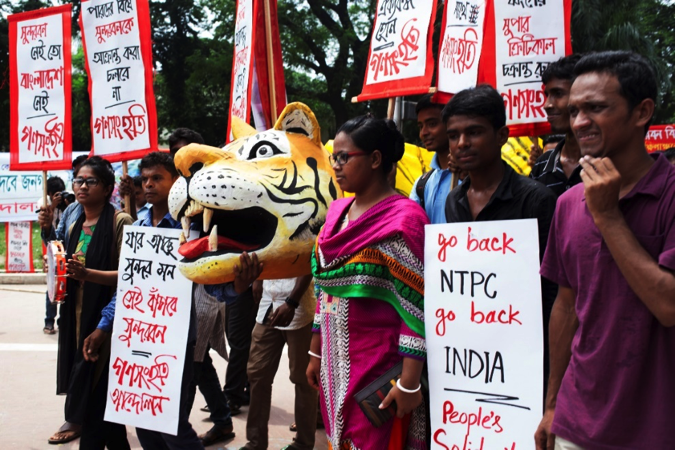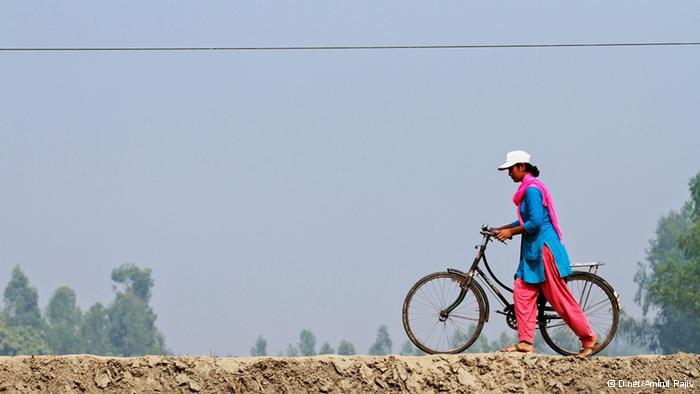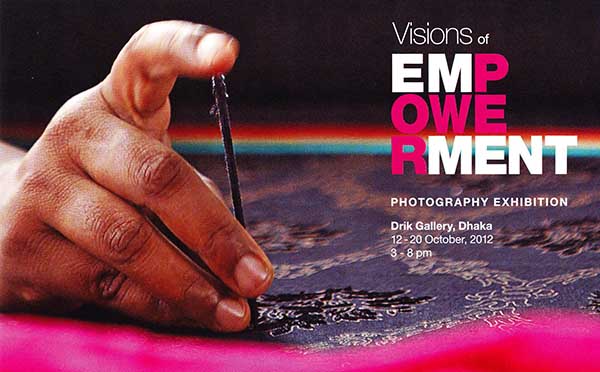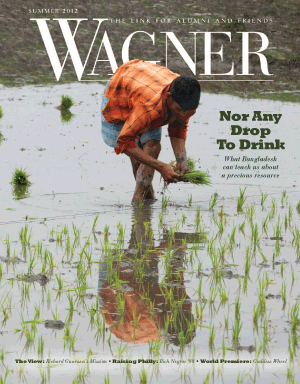‘Go back NTPC, get out India’
rahnuma ahmed

Of all the slogans raised in protest against the coal power plant being built at Rampal in Bagerhat, this one’s the best. Continue reading “RESISTING RAMPAL”
Musings by Shahidul Alam

Of all the slogans raised in protest against the coal power plant being built at Rampal in Bagerhat, this one’s the best. Continue reading “RESISTING RAMPAL”
This year’s Global Media Forum Award went to the project Infolady from Bangladesh. Finalists in the category addressed issues tied to the Deutsche Welle Global Media Forum 2013, which looks at “The Future of Growth – Economic Values and the Media.” The Infolady project helps equip women with digital cameras, mobile phones and solar-powered laptops to travel by bike to rural areas and answer questions related to health, agriculture and development. “Infoladies brings life-saving information about health, education and a number of other services to the poorest people in Bangladesh,” the jury said.

Continue reading “Bangladeshi blog Infolady wins Global Media Forum Award”
 Villagers are doing it for themselves
Villagers are doing it for themselvesON THE outskirts of the village of Shibaloy, just past the brick factory, the car slows to let a cow lumber out of its way. It is a good sign. Twenty years ago there was no brick factory, or any other industry, in this village 60 kilometres west of Dhaka; there were few cows, and no cars. The road was a raised path too narrow for anything except bicycles. Continue reading “The path through the fields”

Dear friend,
The story of BRAC has been told and retold in countless ways ever? since it started? out as?a small relief operation in the aftermath of Bangladesh’s bloody War of Liberation.
In this,?at ?its 40th year and at the peak of recognitions as the word’s largest non-governmental?organisation, BRAC has excavated through its archives to present ?its own version of the?story visually.
Through photographs collected across four decades, and spannng three continents,?”Visions of Empowerment” is on at the Drik Gallery from October 12-20.
As the world gets ready to observe the International Day for the Eradication of Poverty,?please come share this remarkable story.
Asif Saleh
Senior Director Strategy, Communications and Capacity
BRAC and BRAC lnternational
Venue
Drik Gallery
House 58 Road 15A (New)
Dhanmondi R/A, Dhaka 1209
Bangladesh
Time
Inauguration 4:30 pm
October 12. 2012



For almost 20 years, Professor Mohammad Alauddin has been working to solve the drinking water contamination problem in one of the world?s most populous and water-rich nations. What is the solution for Bangladesh ? and what can we learn from it? Insights from this year?s trip to Bangladesh through the Wagner Expanding Your Horizons program.
Story by Laura Barlament / Photos by Habibul Haque/Drik Continue reading “Water water everywhere, Nor any drop to drink”
By David Bergman
The New Age
Thursday, 2 February, 2012
Five non-governmental organisations have admitted to the World Bank that they made corrupt payments to Bangladesh government officials to receive contracts under a bank-funded project.
The admissions are contained in a report of an investigation which the World Bank?s Integrity Vice President conducted into the disbursement to hundreds of NGOs of part of a $53.3 million loan that the bank had given the Bangladesh government to further post-literacy continuing education.
Four of the five NGOs told World Bank investigators that to get a contract under the project, which lasted between 2001 and 2007, they each had to pay at least Tk 100,000 in bribes to government officials, money that was channelled to the officials through intermediaries.
Some NGOs had to pay as much as Tk 600,000 in bribes to obtain a contract, the investigators were told. Continue reading “WB finds graft rampant in govt, NGOs”